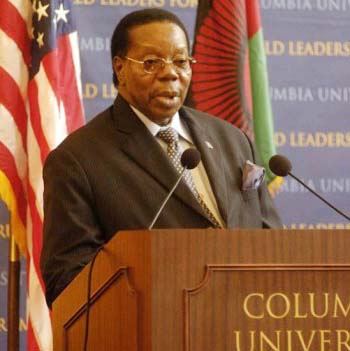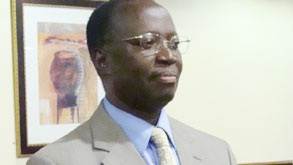Malawi’s economic performance has slowed down way below the earlier projection of 4.3 percent, Finance Minister Ken Lipenga acknowledged on Tuesday.
Lipenga was speaking at the opening of the Common Approach to Budget Support (CABS) joint semi-annual review meeting in Lilongwe where CABS co-chairperson, Asbjorn Eidhammer partially attributed the slowdown in the economy to economic mismanagement by the late Bingu wa Mutharika’s regime.
“This is largely due to significant contraction in three sectors, namely, agriculture, forestry and fishing and manufacturing which experienced a negative growth,” said Lipenga.
“The responsibility for the difficulties we are facing today lies with the previous administration that over a lengthy period mismanaged the country’s economy,” said Eidhammer on the other hand.
This in turn, he said, propelled shortages in fuel and foreign currency, and whose “lack of action threatened to bring the economic and business activities to a standstill”.
“Part of this was ill-advised so called zero deficit budget which ironically increased the budget deficit enormously,” he said.
The main factors were persistent shortages of fuel and foreign currency, pushing up poverty levels and the cost of living among Malawians.
The CABS meeting brings together Malawi’s key donors to review performance of the first quarter of the 2012/13 fiscal year.
During the first quarter, the country recorded no net domestic borrowing according to Lipenga.
“The total resources envelope for the quarter is expected to amount to K105.7 billion, of which K58 billion is domestic revenue and K46.9 billion is grants,” he said.
Lipenga therefore, expressed optimism that the fiscal policy stance of the country would however show good results by the end this fiscal year if government continues on this path of fiscal consolidation.
By end of the first quarter, only World Bank and the African Development Bank brought forward budget support to the country amounting $90 million.
In other areas the development partners have since released at least US$ 270 million since July though different projects and programmes including the budget.




